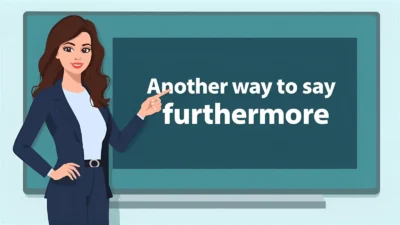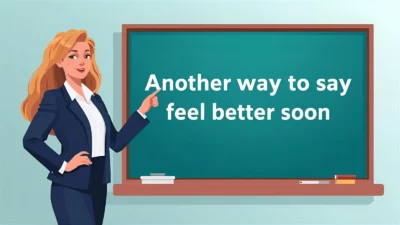The phrase “even though” is a common and useful connector in English. It introduces contrast or contradiction—when something happens despite a particular condition. It’s frequently used in both spoken and written language, from essays to everyday conversation.
However, if you use “even though” repeatedly, your writing can feel repetitive or predictable. Luckily, there are plenty of nuanced alternatives that express concession, contrast, or exception—each fitting different tones, from formal to conversational.
In this article, you’ll find 42 effective alternatives to “even though,” complete with their meaning, detailed explanation, scenario example, best use, and tone to help you express contrast with greater precision and style.
1. Although
Meaning: Introduces a contrast between two ideas or facts.
Detailed Explanation: A direct synonym for “even though,” but slightly more formal and smoother in academic or professional writing.
Scenario Example: Although it was raining, the match continued as planned.
Best Use: Academic, formal, or general writing.
Tone: Neutral, formal, polished.
2. Though
Meaning: Shows contrast or exception between two ideas.
Detailed Explanation: A shorter, more casual version of “although.” It’s often used in speech and informal writing.
Scenario Example: Though he was tired, he stayed up to finish the project.
Best Use: Conversational, semi-formal writing.
Tone: Natural, relaxed, flexible.
3. Even If
Meaning: Expresses a hypothetical or conditional contrast.
Detailed Explanation: Unlike “even though,” which deals with real situations, “even if” refers to imagined or possible ones.
Scenario Example: I’ll go for a walk even if it rains.
Best Use: Hypothetical or conditional contexts.
Tone: Neutral, hypothetical, clear.
4. Despite The Fact That
Meaning: Shows contrast or contradiction between two real events or conditions.
Detailed Explanation: Slightly more formal than “even though,” often used in essays or reports.
Scenario Example: Despite the fact that sales declined, profits remained stable.
Best Use: Academic or business writing.
Tone: Formal, structured, objective.
5. In Spite Of The Fact That
Meaning: Introduces a contrasting idea, similar to “despite.”
Detailed Explanation: Slightly wordier than “even though,” but useful for emphasis.
Scenario Example: In spite of the fact that he’s new, he handled the task well.
Best Use: Academic or descriptive writing.
Tone: Formal, detailed, clear.
6. Whereas
Meaning: Shows opposition or contrast between two situations.
Detailed Explanation: Often used in formal or legal contexts to present contrasting clauses.
Scenario Example: She prefers quiet evenings, whereas he enjoys lively parties.
Best Use: Academic, legal, or analytical writing.
Tone: Formal, contrastive, professional.
7. While
Meaning: Indicates contrast or simultaneous actions.
Detailed Explanation: Commonly used to show that two opposite things are true at the same time.
Scenario Example: While the product is expensive, it offers excellent value.
Best Use: Essays, business writing, everyday speech.
Tone: Neutral, smooth, formal or informal.
8. Even When
Meaning: Expresses contrast in timing or condition.
Detailed Explanation: Refers to something that happens consistently, regardless of certain circumstances.
Scenario Example: She smiles even when she’s under pressure.
Best Use: Conversational, storytelling, descriptive writing.
Tone: Emotional, gentle, natural.
9. Though It May Be
Meaning: Expresses contrast while acknowledging uncertainty or possibility.
Detailed Explanation: A more formal, speculative structure often used in writing.
Scenario Example: Though it may be challenging, the project is achievable.
Best Use: Academic or persuasive writing.
Tone: Formal, thoughtful, analytical.
10. Regardless Of The Fact That
Meaning: Emphasizes contrast despite certain conditions or obstacles.
Detailed Explanation: Stronger in tone than “even though,” implying determination or indifference to barriers.
Scenario Example: Regardless of the fact that he was injured, he completed the marathon.
Best Use: Motivational, formal, or analytical writing.
Tone: Determined, formal, resolute.
11. Albeit
Meaning: Means “although,” often used in concise, formal writing.
Detailed Explanation: A single-word, sophisticated alternative that works well within sentences.
Scenario Example: The presentation was impressive, albeit a bit long.
Best Use: Academic or professional writing.
Tone: Formal, refined, intellectual.
12. Nonetheless
Meaning: Despite something, still.
Detailed Explanation: Usually starts a new sentence or clause to show continuation despite contrast.
Scenario Example: It was a tough decision. Nonetheless, it had to be made.
Best Use: Essays, reports, formal discussions.
Tone: Polished, reflective, formal.
13. Nevertheless
Meaning: In spite of that; however.
Detailed Explanation: Similar to “nonetheless,” but slightly more formal and rhetorical.
Scenario Example: He faced criticism; nevertheless, he stayed true to his vision.
Best Use: Formal essays, speeches, and professional reports.
Tone: Assertive, professional, balanced.
14. Even So
Meaning: Acknowledges a point, but emphasizes an opposite idea.
Detailed Explanation: Often used after admitting something to highlight a contrasting outcome.
Scenario Example: It’s late; even so, we should finish this tonight.
Best Use: Conversational, essays, reflections.
Tone: Balanced, thoughtful, calm.
15. Notwithstanding
Meaning: Despite or regardless of.
Detailed Explanation: A formal or legal synonym for “even though” or “despite.”
Scenario Example: Notwithstanding his experience, he was not selected.
Best Use: Legal, academic, or highly formal contexts.
Tone: Formal, precise, sophisticated.
16. Be That As It May
Meaning: Acknowledges a fact while emphasizing that another point remains valid.
Detailed Explanation: A slightly old-fashioned but elegant phrase for polite disagreement.
Scenario Example: Be that as it may, we still need to follow the policy.
Best Use: Speeches, debates, or formal discussions.
Tone: Polite, diplomatic, formal.
17. Even So Much As
Meaning: Highlights contrast with a strong sense of emphasis.
Detailed Explanation: Used for dramatic effect when emphasizing an unexpected situation.
Scenario Example: He didn’t even so much as apologize for his mistake.
Best Use: Creative or expressive writing.
Tone: Emphatic, literary, expressive.
18. Yet
Meaning: Shows contradiction or contrast with brevity.
Detailed Explanation: Very common in both spoken and written English; adds punch to short sentences.
Scenario Example: She worked hard, yet success eluded her.
Best Use: Essays, speeches, storytelling.
Tone: Neutral, impactful, versatile.
19. Still
Meaning: Indicates persistence or continuation despite something.
Detailed Explanation: Works well in both formal and casual contexts for emphasis.
Scenario Example: It was risky; still, they took the chance.
Best Use: Conversational or persuasive writing.
Tone: Calm, reflective, concise.
20. For All That
Meaning: Despite everything.
Detailed Explanation: A slightly poetic phrase that conveys concession with subtlety.
Scenario Example: He’s strict, but for all that, he’s deeply caring.
Best Use: Literary or reflective writing.
Tone: Poetic, thoughtful, gentle.
21. Even So That
Meaning: Suggests contradiction with an outcome.
Detailed Explanation: Adds emphasis to the fact that something happened despite conditions.
Scenario Example: It was dangerous, even so that they went ahead anyway.
Best Use: Informal writing or speech.
Tone: Casual, emphatic, natural.
22. Though Still
Meaning: Combines concession with continuity.
Detailed Explanation: Smoothly bridges two contrasting but ongoing ideas.
Scenario Example: Though still tired, he managed to finish the job.
Best Use: Descriptive or narrative writing.
Tone: Natural, moderate, neutral.
23. Even After
Meaning: Describes persistence beyond an expected stopping point.
Detailed Explanation: Emphasizes continuation despite circumstances.
Scenario Example: Even after losing everything, she remained hopeful.
Best Use: Storytelling, emotional or reflective writing.
Tone: Emotional, hopeful, warm.
24. Despite
Meaning: Without being affected by; in spite of.
Detailed Explanation: Short and formal; best when followed by a noun or gerund.
Scenario Example: Despite the rain, the festival continued.
Best Use: All types of writing, especially formal.
Tone: Formal, concise, professional.
25. In Spite Of
Meaning: Expresses contrast or contradiction with simplicity.
Detailed Explanation: Similar to “despite” but slightly more conversational.
Scenario Example: In spite of his nerves, he delivered a great presentation.
Best Use: General writing, speeches, or essays.
Tone: Neutral, balanced, clear.
Conclusion
The phrase “even though” is simple and effective for showing contrast—but using a variety of alternatives like “although,” “despite,” “whereas,” or “nonetheless” can elevate your writing and help you match the tone of your message.
Use “although” or “whereas” for formal clarity, “though” or “while” for conversational flow, and “nevertheless” or “nonetheless” for polished, persuasive writing. With these alternatives, you can express contrast smoothly, precisely, and stylistically.



